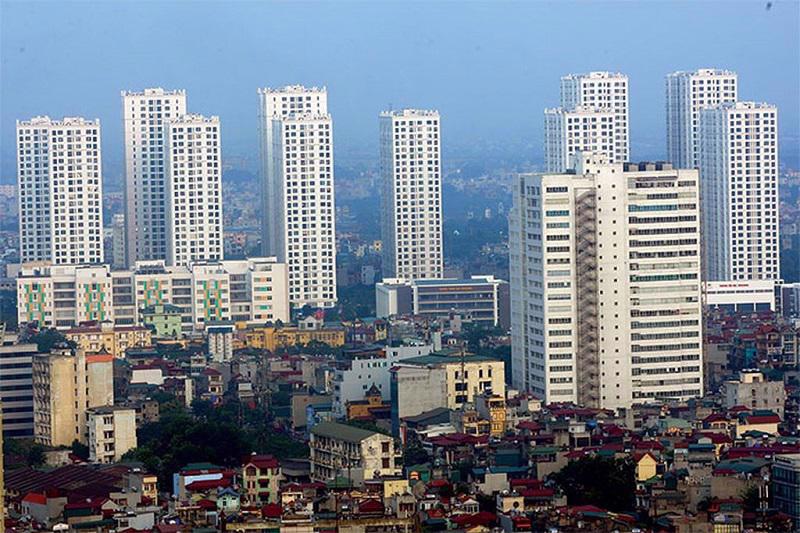Registered FDI capital stood at $6.17 billion in the first quarter of 2024, a 13.4 per cent increase year-on-year, according to the Foreign Investment Agency at the Ministry of Planning and Investment.
The real estate sector ranked second in terms of capital, after the manufacturing and processing sector, with $1.58 billion, or 2.1-fold higher than in the same period of 2023.
Positive impact
Vietnam has been praised for its transparent policies and favorable investment environment for foreign investors. The government has succeeded in keeping foreign exchange rates and inflation under control, helping to strengthen trust among foreign investors. With stable interest rates, foreign investors have had an easier time obtaining loans for investment projects. Low interest rates have also helped accelerate economic growth by encouraging spending, thus creating more opportunities for foreign businesses.
Together with monetary policies, the government has also implemented appropriate fiscal policies to boost economic growth, including a 2 per cent reduction on value added taxes for most products and reductions to land rentals and extensions to payment timeframes for taxes and land rentals in 2023. It plans to maintain its expanded fiscal policy and loosen monetary policy this year, with the aim of ensuring State budget collections while helping businesses and individuals recover and promote growth.
Regarding policies for the real estate sector, Prime Minister Pham Minh Chinh has stressed that such policies must be based on “harmonizing the benefits and sharing the risks” amid the ongoing difficulties. Many laws, decrees, and resolutions were therefore approved last year to support the market, including the amended Law on Real Estate Business, the amended Law Housing, and the amended Land Law, together with a social housing support program worth VND120 trillion ($4.8 billion). These are expected to help enhance stability in the real estate market while creating opportunities for foreign investors.
Vietnam has demonstrated its stability in terms of not only politics but also in socio-economic development, especially at the macro level. Its economy has gradually recovered post-Covid-19, with a low inflation rate and stable foreign exchange rate compared to other regional countries. The real estate market has retained its appeal among foreign investors and developers as a result.
Widespread interest
All real estate segments hold appeal in attracting foreign investors this year. In the housing segment, investors are seeking opportunities and developing projects under their own brands amid rising demand for housing and limited supply. Their advantages in brand reputation, design, and construction quality and standards are key factors ensuring that their products, including those in the high-end segment, are always welcomed in the market.
The office segment, meanwhile, has also gained it share of attention from investors. According to real estate consultants Savills Vietnam, the market has witnessed growth in demand from energy, manufacturing, and consulting businesses, which has contributed to maintaining stable occupancy rates. In major cities like Hanoi, Da Nang, and Ho Chi Minh City, the office segment has presented opportunities for foreign investors to position their products to meet green standards such as LEED, WELL, and BREEAM.
In Hanoi, foreign investors have expanded their investment in developing areas outside of the city center, following the trend of public administrative agencies being relocated, the development of transport infrastructure, and the growth of urban areas with large populations.
In the retail sector, the participation of giant retailers highlight Vietnam’s appeal. Major investors are seeking land to build large-scale commercial and services projects. In early February, Central Pattana, a member of the Central Group, Thailand’s leading retail group, prepared to establish a legal entity in Vietnam to join its vibrant retail market. Earlier, THISO opened a third Emart hypermarket in Ho Chi Minh City and plans to invest in the northern region after purchasing a 2.4 ha land plot to the west of Hanoi’s West Lake.
The hospitality industry is also on the path to recovery. Vietnam catered to 120.6 million tourists in 2023, a year-on-year increase of 19 per cent, including 12.6 million international visitors, or triple the figure of 2022, according to Savills Vietnam. It also reported that both Hanoi and Ho Chi Minh City saw increases in accommodation occupancy and room rates, of 21 percentage points and 28 per cent, and 18 percentage points and 14 per cent, respectively, year-on-year.
Many foreign investors hold a positive view about the recovery of the segment as well as the development potential of Vietnam’s hospitality industry, and have suggested that now is the right time to join the market.
Foreign investors have also become more open to other types of investment, from financial investment and capital contributions to business cooperation contracts, to optimize the potential of the property market. Many foreign investors have also expanded their investment and sought opportunities in areas outside of the center of major cities.









 Google translate
Google translate